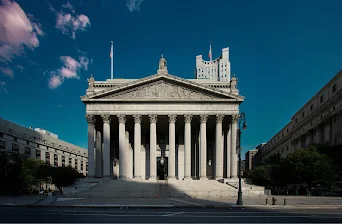Supreme Court to Hear Trump's Birthright Citizenship Case Amid Legal Challenges
The U.S. Supreme Court has agreed to
hear arguments on May 15, 2025, regarding former President Donald Trump's
executive order aimed at restricting birthright citizenship. This policy seeks to deny automatic citizenship to children born
in the U.S. to parents who are in the country unlawfully or temporarily.
The order has faced legal challenges and has been blocked
by federal courts in Washington state, Massachusetts, and Maryland.
Background of the Executive Order
Upon returning to office, President
Trump signed an executive order titled "Protecting the Meaning and Value
of American Citizenship." The directive asserts that the 14th Amendment's
Citizenship Clause does not extend citizenship to all individuals born on U.S.
soil, specifically excluding children born to parents who are not "subject
to the jurisdiction" of the United States. The administration contends
that this interpretation aligns with the original intent of the 14th Amendment
Legal Challenges and Nationwide
Injunctions
The executive order has been met
with opposition from various states and civil rights groups. Federal district
courts in Washington, Massachusetts, and Maryland issued nationwide injunctions
blocking the policy, arguing that it conflicts with the 14th Amendment's
guarantee of citizenship to individuals born in the U.S. The Trump
administration has requested the Supreme Court to narrow these injunctions,
allowing the policy to take partial effect while legal proceedings continue.
Implications of the Supreme Court's
Review
The Supreme Court's decision to hear
the case brings significant attention to the interpretation of the 14th
Amendment and its application to birthright citizenship. Legal experts
anticipate that the Court's ruling could have far-reaching consequences for
immigration policy and constitutional law. Additionally, the case raises
questions about the scope of judicial authority, particularly concerning
nationwide injunctions issued by lower courts.
Conclusion
As the Supreme Court prepares to
hear arguments in May, the outcome of this case will be closely watched by
policymakers, legal scholars, and advocacy groups. The Court's ruling could
redefine the understanding of citizenship in the United States and set a
precedent for future immigration-related legal challenges.








Comments
Post a Comment